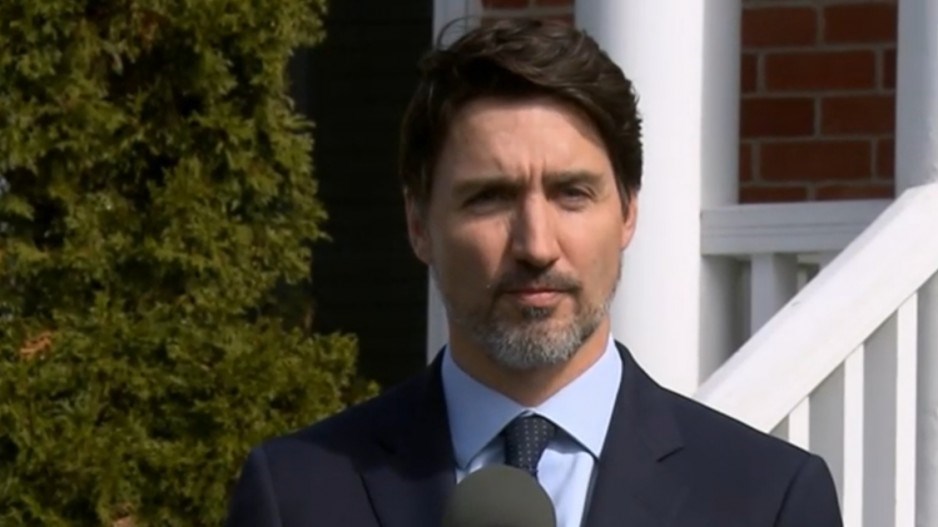What happened: The prime minister has acknowledged discussions about U.S. troops possibly being stationed closer to the Canadian border amid pandemic
Why it matters: The border has already been closed to non-essential travel between the two countries
Prime Minister Justin Trudeau says his government has been in talks with U.S. officials amid reports of American troops possibly be deployed close to the Canadian border in response to the COVID-19 pandemic.
Global News reported March 26 the Trump administration was weighing the option but no decision has been made.
Trudeau confirmed that such discussions between the two countries about such a move have been underway.
“Canada and the United States have the longest un-militarized border in the world and it is very much in both of our interests for it to remain that way,” he said during his daily press briefing outside his home in Ottawa.
He remained otherwise tight-lipped about the possibility of more American military troops being deployed near the border.
The prime minister was just coming of a teleconference with leaders of all G20 countries, in which the world’s largest economies discussed measures to fight the pandemic.
“We’re going to do whatever it takes. That means making sure the World Health Organization and our public health agencies have the resources they need. It means working together to develop a vaccine, identify treatments and increase testing,” Trudeau said.
He added later that monetary support for more economically vulnerable nations is also in the cards.
“Support for vulnerable countries who are struggling with the ability to combat this virus is not just about being altruistic, it’s about protecting Canadians as well. This virus will possibly face resurgences even once we handle it in Canada,” he said, adding that the resurgence will be better managed globally if vulnerable countries receive assistance through bodies such as the World Health Organization or the World Bank.
“We know that we have the capacity to stave off and positively impact the economy at this time of significant stress. And so we pledged to work together to help vulnerable countries that don’t have the science or the health systems to be able to keep their populations safe.”
The prime minister also addressed the federal government’s March 25 decision to invoke the Quarantine Act, which requires all international travellers to self-isolate for 14 days after arriving in Canada.
The government had previously been urging travellers to do so, but it was not mandatory until March 25.
Those who do not comply face fines of up to $1 million and three years’ prison time.
“This type of conduct is not just disappointing, it’s dangerous,” Trudeau said, referring to those who have been arriving home from abroad but have not being going straight home.




